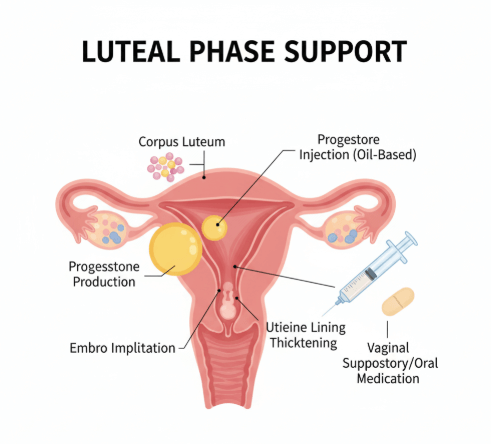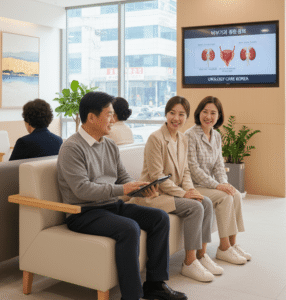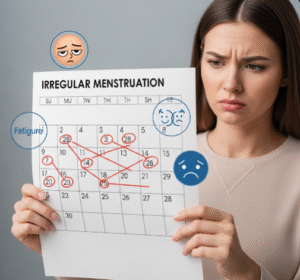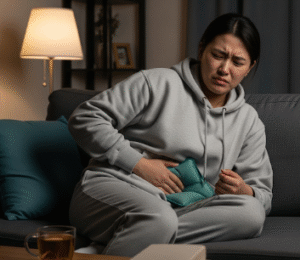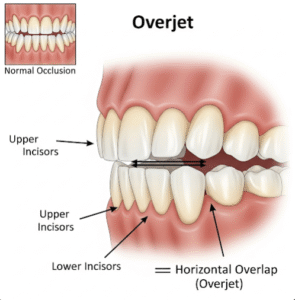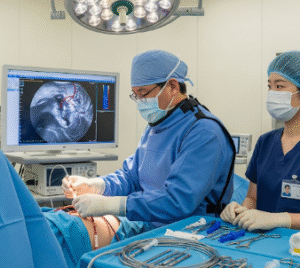What it is
The luteal phase is the part of the menstrual cycle that occurs after ovulation and before menstruation, typically lasting 12–14 days. During this phase, the body produces progesterone to prepare the uterine lining for possible embryo implantation.
✔️ Luteal phase support (LPS) is a treatment approach used mainly in fertility treatments such as IVF or IUI to ensure that the uterine lining remains strong enough to support embryo implantation.
✔️ Methods include progesterone supplementation, hCG injections, and sometimes estrogen support.
✔️ In Korea, luteal phase support is a routine part of assisted reproductive treatments, performed with precision and close monitoring.
➡️ Without adequate luteal support, implantation may fail, even with high-quality embryos.
Why it’s done
Luteal phase support is essential because it:
🔹 Stabilizes the uterine lining, ensuring it is receptive to embryos.
🔹 Compensates for hormonal suppression caused by ovarian stimulation in IVF.
🔹 Increases pregnancy rates in assisted reproductive techniques.
🔹 Reduces miscarriage risk by supporting early pregnancy.
🔹 Improves embryo implantation success, especially in women with luteal defects.
💡 Highlight: Even the best embryos cannot implant if the uterine lining is not adequately supported. Luteal support bridges this gap.
Alternatives
For women not undergoing fertility treatment, alternatives to standard luteal support include:
➡️ Lifestyle optimization – balanced diet, stress management, adequate sleep.
➡️ Nutritional supplements – vitamin B6, vitamin D, and inositol for hormone balance.
➡️ Acupuncture and Korean traditional medicine – used to enhance circulation and hormonal regulation.
➡️ Natural progesterone boosters – such as healthy fats (avocados, nuts, seeds).
⚠️ Note: In IVF or IUI, medical luteal support is not optional; alternatives alone are not sufficient.
Preparation
Before starting luteal phase support in Korea, preparation involves:
✔️ Hormonal evaluation – to check progesterone and estrogen levels.
✔️ Ultrasound scan – to assess endometrial thickness and receptivity.
✔️ Medication planning – personalized timing of progesterone or hCG.
✔️ Patient counseling – explaining usage methods (injections, oral, vaginal).
✔️ Monitoring schedule – follow-ups for dosage adjustment.
💡 Tip: Korean fertility centers provide individualized medication protocols, tailored to each patient’s response.
How it’s done
Luteal phase support in Korea is typically managed as follows:
- Progesterone supplementation
- Vaginal suppositories or gels (most common in Korea for high uterine absorption).
- Oral progesterone pills for convenience.
- Progesterone injections for patients needing stronger support.
- hCG injections
- Sometimes used to stimulate the ovaries to continue natural progesterone production.
- Estrogen support
- In some IVF cycles, additional estrogen helps maintain endometrial thickness.
- Monitoring and adjustment
- Blood hormone levels checked regularly.
- Dosage adjusted depending on embryo transfer results and early pregnancy status.
💡 Highlight: Korean clinics combine ultrasound monitoring with hormone testing, ensuring precise and effective luteal support.
Recovery
Since luteal support is medication-based, there is no surgical recovery. However, women may experience:
✔️ Mild side effects – bloating, breast tenderness, fatigue, or mood changes.
✔️ Spotting or discharge with vaginal progesterone.
✔️ Injection site soreness for those receiving shots.
✔️ Emotional stress during the two-week wait before a pregnancy test.
When to revisit a doctor:
➡️ If heavy bleeding occurs before the pregnancy test.
➡️ Severe side effects such as allergic reactions or extreme pain.
➡️ If pregnancy test is positive – luteal support usually continues until 8–12 weeks of pregnancy.
💡 Important: Korean clinics provide emotional counseling alongside medical care, since the luteal phase can be one of the most stressful periods in fertility treatment.
Treatment option in Korea
Korea offers world-class luteal phase support as part of fertility care:
⭐ Advanced fertility centers with state-of-the-art labs and monitoring systems.
⭐ Wide range of progesterone delivery methods tailored to patient preference.
⭐ Integration with traditional Korean medicine (acupuncture, herbal therapy).
⭐ Affordable fertility packages compared to Western countries.
⭐ Multilingual fertility care services for international patients.
💡 Highlight: Korean fertility care excels in personalized, monitored luteal support, ensuring the best environment for embryo implantation.
Key Highlights
✔️ Luteal phase support ensures proper uterine lining receptivity during IVF/IUI.
✔️ Methods include progesterone, hCG injections, and sometimes estrogen.
✔️ Preparation involves hormone testing and personalized medication planning.
✔️ Recovery is easy, with only mild side effects.
✔️ Korean clinics offer advanced, affordable, and holistic luteal support care.

